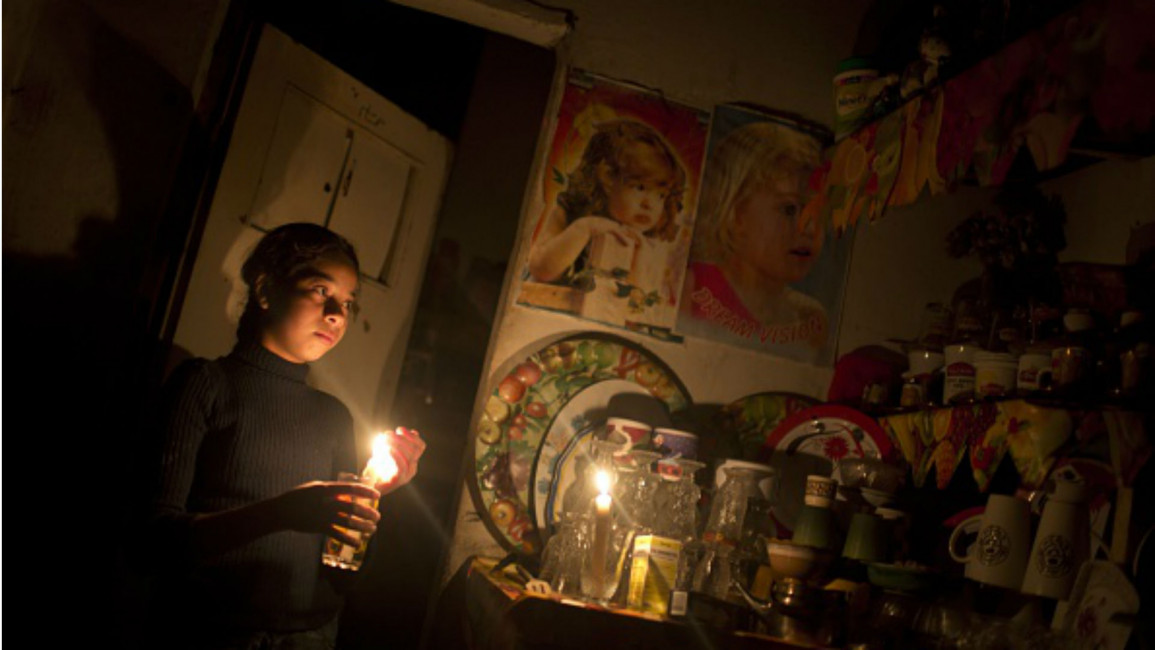Gaza goes dark as last power station shuts
The Gaza Strip's sole power station has shut down, the energy authority said on Thursday, following a dispute with the West Bank-based Palestinian Authority over fuel tax.
Hamas, which governs Gaza, pays the PA for fuel imported to the enclave, but is short of cash and had been unable to cover the additional costs in tax.
In December, Qatar stepped in and donated $10m to the PA to cover the tax, effectively exempting Hamas from paying it. But that money has now dried up, and the PA is insisting Hamas begin paying the tax again.
The power station stopped producing electricity during the night, after Qatari donations ran out," the Hamas-run Gaza energy authority said.
"We are unable to pay for the fuel because of the taxes on buying it."
Gaza is blockaded and controlled by Israel on two of its crossings, and isolated by the Egyptian closure of a third.
Fuel is bought by the PA from Israel and its entry is also facilitated by Israel.
Generating discontent
A crisis-hit Hamas is unable to pay its own security and public employees due to the continued Israeli blockade and Egypt's closure of the border, with financial restraints hurting the group.
International funding and financial assistance is delivered to the PA, as the internationally recognised representative body of the Palestinian people.
The power station requires 550,000 litres (145,000 gallons) of fuel per day to produce at capacity, the energy authority says.
It was damaged by Israel during it's latest summer attack on Gaza, a move that amounted to "collective punishment of Palestinians", according to Amnesty International.
Even with the power station at full capacity, Gaza suffers 12 hours of power cuts each day. That is expected to increase to 18 hours after the plant's shutdown.
| The power station requires 550,000 litres (145,000 gallons) of fuel per day to produce at capacity, the energy authority says. |
Hamas and the Palestine Liberation Organisation, which dominates the PA, signed a unity deal in April that was to see the West Bank-based government take over administration and security of the Gaza Strip.
But pending various disputes, including over the payment of Hamas's security forces, the deal has yet to be implemented, and Hamas remains in control of Gaza.
The two sides agreed on a government of independents in June, but progress on reconciliation to fix a years-old split was further delayed by Hamas's war with Israel in July and August.



